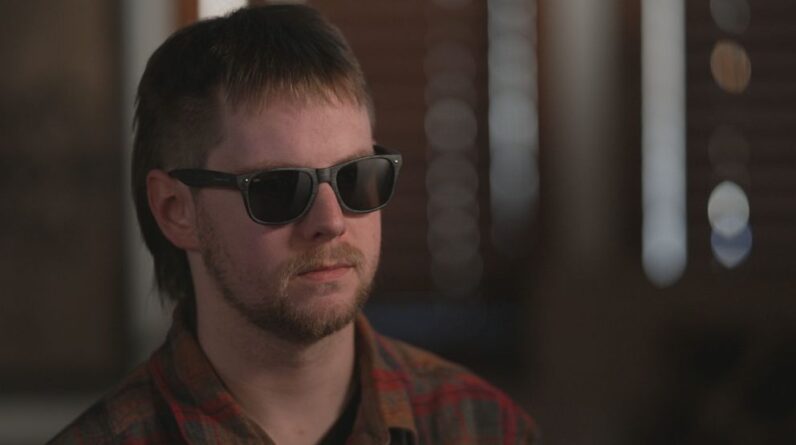
Nearly two decades after authorities began connecting the dots to uncover the gruesome truth behind four missing people linked to Scott Kimball, a Colorado FBI informant and serial killer, his children are breaking their silence.
Kimball’s sons Justin and Cody Kimball, who were just children at the time of the slaying, are discussing for the first time details about what they say is their father’s attempt to kill Justin when he was just 10 years old.
“I just remember thinking, ‘This guy is going to kill me, and he’s obviously making it look like an accident.’ No one will know because I’ll be dead,’” Justin, now 29, said in an exclusive interview with 20/20’s John Quiñones.
Justin Kimball is shown during an interview with “20/20.”
ABC News
One night in July 2004, Scott Kimball and his two sons were in the backyard digging holes and chasing mice. Justin said that when Cody entered the house, his father told Justin to dig a hole in a specific spot while keeping his eyes on the horizon.
“[It] I felt like I saw a bunch of stars, flashes in front of my face, and then the big bang came,” Justin said. “I felt it hit me.”
A large metal cattle grid had fallen on his head. While on the way to the hospital, Justin claims his father tried to kill him again by throwing him out of a moving car.
“What I do remember, he pushed me in the face, because I remember how big his hand was and how hot it felt on my cold face,” Justin told “20/20.”
According to a police report, Scott Kimball told officers he was inside when Justin was playing near the gate, looked out and saw his son had fallen on top of him. Kimball also told police she was trying to pull Justin back into the car, not push him to the hospital.
“At this time we have no reason to believe that there has been any criminal activity,” the police report states.
The boys’ mother, Larissa, then divorced from Scott Kimball, rushed to the hospital when she heard about her son.
“The surgeon came in and said, ‘I just want to tell you right now, it doesn’t look good,'” Larissa, who is using only her first name for privacy, told “20/20.”
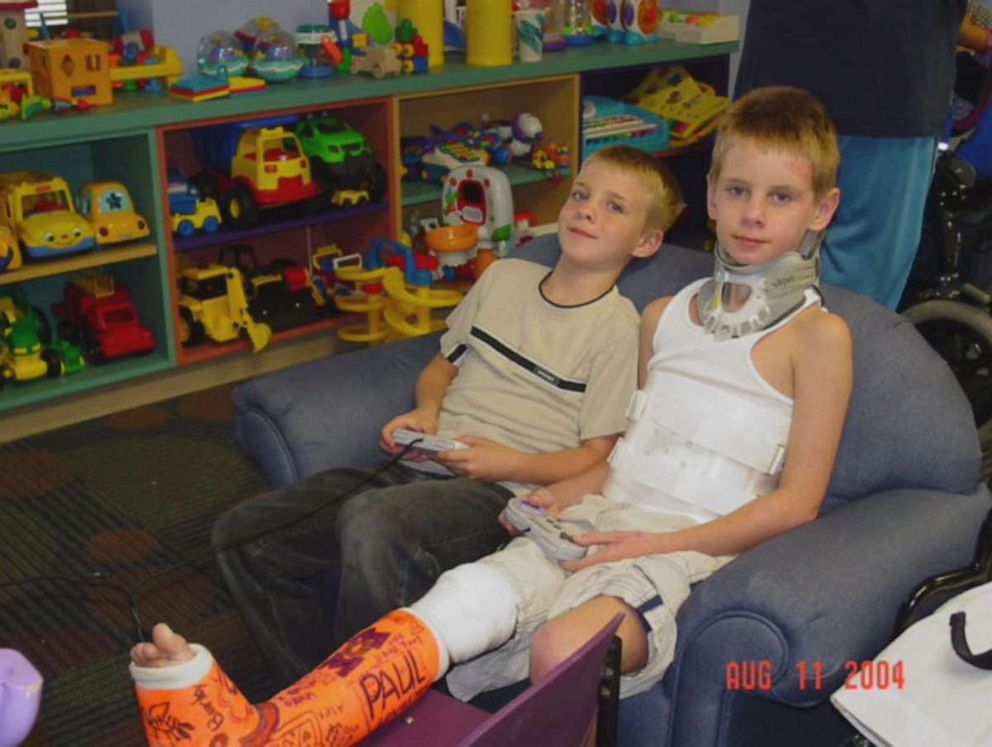
Cody Kimball visits Justin Kimball in the hospital in 2004.
Courtesy of the Justin Kimball family
Justin suffered critical brain damage and was placed in a medically induced coma, but miraculously survived. And his first words upon regaining consciousness surprised the relatives gathered around his bed.
“I remember saying, ‘My dad did it.’ Because I remember thinking that my last thought before I passed out was, ‘No one will ever know that he tried to do this to me,'” Justin said .
According to authorities, there was a life insurance policy on Justin worth $50,000. A few days before the incident, Scott became the sole beneficiary.
When asked about how she felt when she found out about Scott’s policy change, Larissa said: “To be honest, I think I threw up, because then it all started to make sense. This was no accident “.
At the time, the neurosurgeon treating Justin said the injuries likely affected his memory of the incident. Scott Kimball was never charged with any crime related to the incident with Justin, and denies causing any harm to his son.
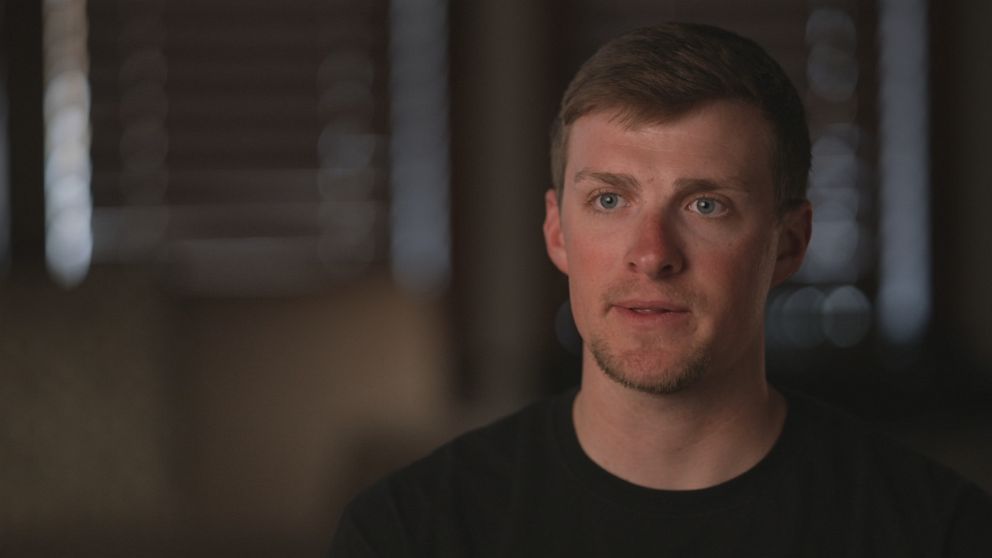
Cody Kimball is shown during an interview with “20/20.”
ABC News
Two years later, in 2006, local detectives in Lafayette, Colorado began investigating Scott Kimball for check fraud. He was arrested after a dramatic police chase in California and charged as a habitual offender, with prior non-violent offenses including forgery, theft and fraud.
However, detectives suspected that Scott Kimball was involved in more than just financial crimes after it emerged that he was the last person seen with two missing women: Kaysi McLeod and Jennifer Marcum, who disappear in 2003.
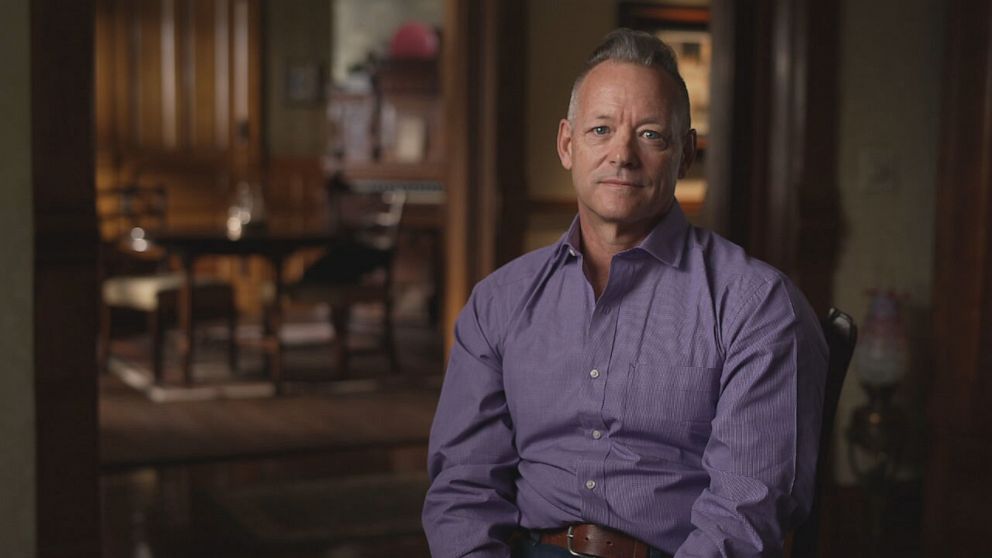
Rob McLeod, the father of Kaysi McLeod, is shown during an interview on “20/20.”
ABC News
In 2003, Kimball convinced the FBI to use him as a paid informant to stop a murder again. The FBI had used Kimball in the past as an informant in Alaska and Seattle, where they believed he was instrumental in helping stop the murder of a federal judge and a prosecutor.
But in 2003, not only did he falsely lead the FBI to believe he could help them prevent the murder as an informant in Colorado, he killed several people during that time period, including Jennifer Marcum. The FBI investigated her disappearance, but her body was never found and the case was dropped. The FBI would later admit to being duped by Kimball.
Not only did Kimball deceive the FBI, but he also deceived Lori McLeod, the mother of one of the missing girls, Kaysi McLeod. Kimball explained that he worked for the FBI and was using his contacts to track down Kaysi.
Kimball’s web of lies and manipulation unraveled in 2006, when both of those missing women’s parents went to the FBI. Rob McLeod had contacted Bob Marcum after seeing a news article about Jennifer Marcum’s disappearance that mentioned Scott Kimball as the last person to see her alive.
“Rob McLeod and Bob Marcum … walked into the FBI office in November of 2006,” former Special Agent Johnny Grusing told ABC News. “Both Rob and Bob say in my head that Scott Kimball took their daughters.”
Scott Kimball was also connected to two other missing people, his own uncle, Terry Kimball, and LeAnn Emry, the ex-girlfriend of another of Kimball’s former cellmates.
“No one saw the big picture of who Scott Kimball was. It wasn’t until we started looking at his criminal history and putting things together that we could see that each individual agency had no idea what he was really dealing with,” he said. said Gary Thatcher, chief investigator for the Boulder County district attorney’s office, which was investigating Kimball for check fraud.
Investigators had a break in the case while questioning Kimball about the disappearances, and he mentioned the possibility that one of the missing women could be found on National Park Service land.
“Scott was trying to do time in federal prison because life is easier for him than in state prison,” Grusing said.
Investigators already knew Scott Kimball said he had been hunting the day Kaysi McLeod disappeared. While executing a search warrant on Kimball’s belongings, Grusing had found a receipt from a grocery store in Walden, Colorado, which is surrounded by national forest land.
Grusing called the Forest Service and learned that a hunter had recently found a skull on the ground in the area.
“Based on what Scott had said, based on the receipt, based on the godforsaken place this hiker was recovered, I had a pretty good idea it was Kaysi,” Grusing said.
Grusing was right, and the confirmation was a turning point in the investigation.
Now that investigators had recovered Kaysi McLeod’s remains, they negotiated a deal with Scott Kimball. He agreed to bring in Jennifer Marcum, Terry Kimball and LeAnn Emry in exchange for reduced charges. Kimball’s information led investigators to the bodies of LeAnn Emry in Utah’s Book Cliffs and Uncle Terry near Vail, Colorado. However, Jennifer Marcum was never found. As a result, his deal was renegotiated.
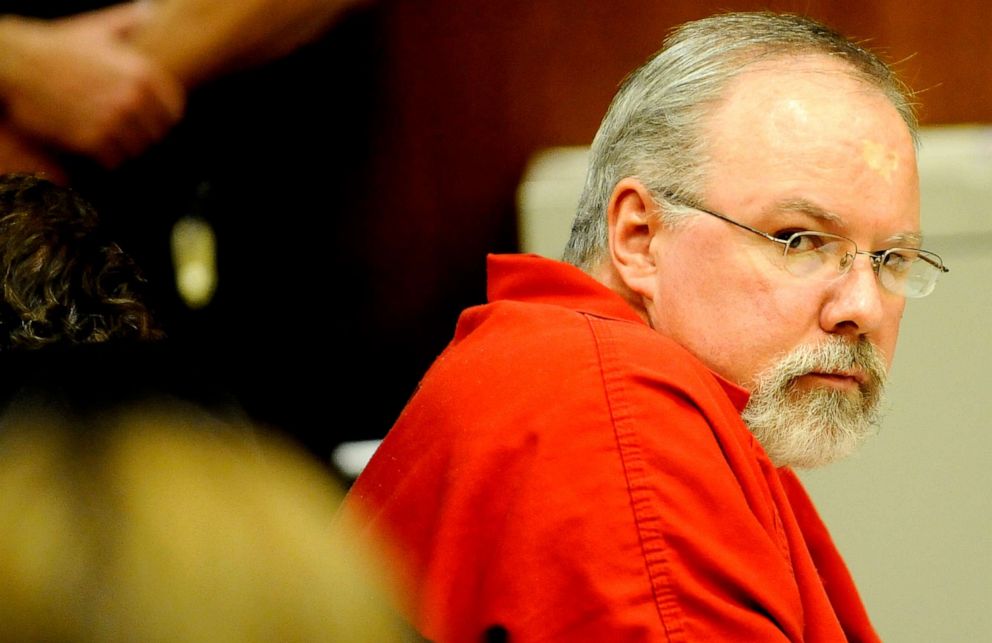
Scott Kimball looks up as charges and sentencing requirements are read during his hearing at the Boulder County Justice Center in Boulder Colo., on October 8, 2009.
Mark Leffingwell/AP
In October 2009, Scott Kimball was sentenced to 70 years in prison after pleading guilty to the murders of Kaysi, Jennifer, LeAnn and Terry. At the sentencing, the room was filled with relatives of the victims.
“My daughter was a young woman with feelings and dreams and to treat her like trash is despicable,” said LeAnn Emry’s father, Howard.
Justin Kimball is haunted by the grievous wounds he says he inflicted on his own father and remains haunted by the killing.
“It’s unforgivable and it’s exactly where it belongs,” Justin said.
“20/20: Rocky Mountain Horror” airs Friday, May 12 at 9:00 PM ET on ABC.
ABC News’ Tami Sheheri, Lindsey Schwartz, Tim Gorin and Kyla Milberger contributed to this report.
[ad_2]
Source link





